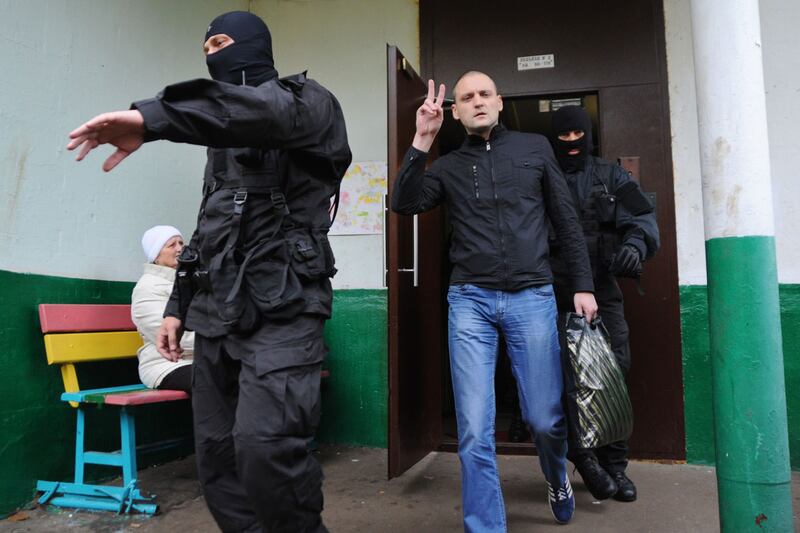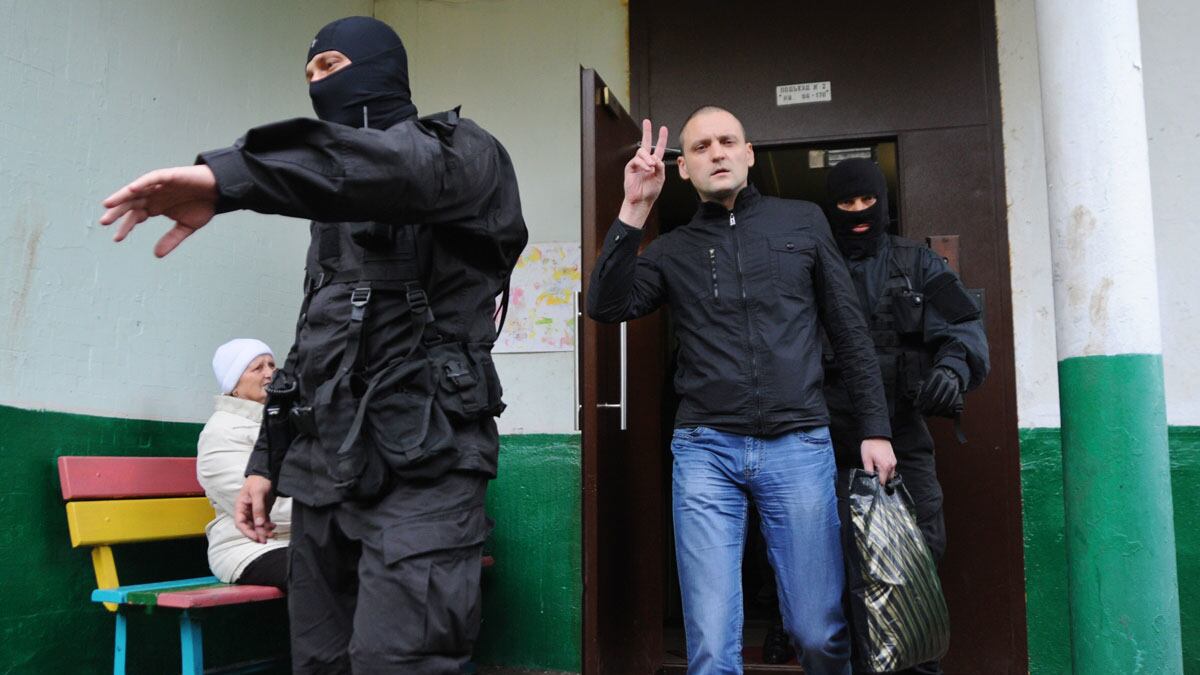Hours after police placed Sergei Udaltsov, the leader of mass protests against President Vladimir Putin, under house arrest on Wednesday, three female activists in Moscow were detained in front of Vladimir Lenin’s mausoleum for participating in unsanctioned demonstrations against the regime.
Coupled with the arrest of 18 other activists this week, critics say the detentions are part of a new wave of political repression by the Kremlin. Only now with Udaltsov facing charges of terrorism, the stakes appear to be higher for Russian dissidents of all stripes.

Udaltsov, a leader of the Left Front protest movement, which led demonstrations against Putin this winter, was put under house arrest on Wednesday along with fellow activists Konstantin Lebedev and Leonid Razvozjayev. All three are suspected of staging terrorist attacks in Russia, a crime which is punishable by more than 10 years in prison. “This is arbitrary repression,” Udaltsov told reporters as police officers in black uniforms and balaclavas escorted him outside of his apartment on Wednesday. “I hope society will not stay silent.”
The arrests came after NTV, a pro-government television channel, aired what is alleged to be a secret tape showing Udaltsov at a meeting with Georgian politicians in Minsk. NTV said that Udaltsov’s goal was to use foreign funding to seize power in cities across Russia, including Kaliningrad, a Baltic enclave. “Everything that was shown was very serious,” said Irina Yarovaya, the head of the security commission at the Duma, Russia’s parliament, in an interview with state television. “Factually, we see the preparation to commit a serious crime that would threaten state security.” Udaltsov referred to the film as a “total lie.”
Wednesday night’s detainment of the three female activists—Olga Faleyeva, Vera Lavreshina, and Anastasiya Zinovkina—comes after a summer during which many Russians took to the streets to denounce the arrest of several members of Pussy Riot, a female punk band that performed an anti-Putin song at Moscow’s Church of Christ the Savior in February. Last week, a judge in Moscow released one member of the band after reducing her sentence from two years in prison to two years probation. Two other members remain behind bars.
Putin, a former KGB officer, who served as president from 2000 to 2008, before serving the next four years as prime minister, returned to the presidency in May after easily winning reelection. Yet his formal return to power was highly contested by an invigorated opposition, many of whom took to the streets. Those protests culminated this spring on the eve of Putin’s inauguration, after which a dozen organizers were arrested. They still remain behind bars on charges of organizing disturbances.
This week’s arrests may only be the beginning of a wider crackdown on Putin’s opposition, according to political analysts, though it remains unclear how the activists will respond. “There are about 2,000 active organizers who can bring to the streets about 20,000 to 100,000 protesters,” said Mikhail Bunin, director of the Center for Political Technologies, a Moscow-based think tank said in an interview. “Depending on public reaction, the punishment system can start slowly and then rush to full-speed Soviet repressions.”
Thus far, however, few have rallied in support of Udaltsov and his fellow dissidents. On Thursday, just a handful of people, including Alexei Navalny, a prominent anti-corruption blogger, demonstrated outside of the Interior Ministry, demanding their freedom.





